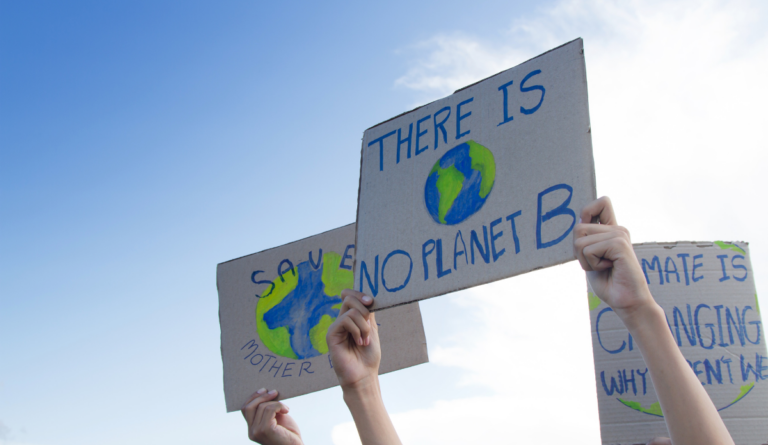Anxiety to Action: Inspiring Climate Activism
While many Americans identify climate change as a major concern, few actually take action, citing a lack of skills and knowledge as significant barriers.

Read Time: 3 minutes
Published:
More than 50% of Americans feel concerned about climate change. But this does not always translate to action. Only 13% of Americans have taken political action, such as signing a petition about global warming. Inaction can stem from climate doomism, or the idea that fighting climate change is futile and that there is no saving the Earth anymore.
Activists and scientists alike criticize this perspective, pointing out that it leads to paralysis. But how do we collectively overcome these overwhelming feelings and focus on making smaller progress?
Carl Latkin and colleagues examined barriers that prevent engagement in climate change activism. They gathered data from the longitudinal COVID-19 and Well Being study, which surveyed respondents about the importance of climate change in their lives, the ways they’ve changed their behavior, and the reasons for their lack of engagement.
Respondents answered the following question: “How important is the issue of global warming to you personally?” The research team focused on respondents who rated global warming as “very important” or “extremely important.” They asked these respondents whether they have performed pro-climate change action behaviors: 1) contacting government officials, 2) voting for candidates, 3) signing a petition, 4) volunteering with organizations, and 5) donating to organizations. In a separate question, respondents also indicated whether they recently spoke to loved ones about climate change.
Latkin and colleagues found that the most common form of activism was voting for candidates, which 69% of the sample reported doing. The least common was volunteering, performed by only 9.4% of the sample.
When action becomes normalized, the entire population will be more likely to take up the cause.
To understand why people who were worried about global warming did not get involved, the research team provided respondents with a list of possible reasons. These ranged from not having training, knowledge, or time, to worrying about negative reactions or having to give money.
Even though these respondents had originally reported that global warming was an important issue for them, on average, they noted roughly 5 barriers to action. “Other people are better at it” and “I haven’t been trained” were the mostly frequently cited reasons (57.4% and 56.7% respectively). Approximately half said they did not get involved because they were not asked, they did not know how, and they did not think the activities involved were appealing (i.e., letter writing).
Respondents who said they were “not encouraged to become involved” were significantly less likely to vote for candidates supporting climate action and to sign a petition against climate change. In contrast, talking to loved ones in the past month about climate change made respondents more likely to take almost every action.
With these explanations, the big question is: how do climate activists actually encourage those who find the issue important to act instead of getting paralyzed?
For organizations working to address climate change, the authors suggest making it clear that people don’t need extensive knowledge or time to volunteer. Organizations should hold trainings themselves, starting with low-skill activities and building more skill over time. This can help volunteers first get involved. It’s also vital for organizations to showcase their successes to keep volunteers motivated and sustain involvement.
Lastly, the research team points out that organizations must be more strategic with communication and outreach. Given the power of social networks, the authors suggest identifying individuals who have great influence within their network and training these individuals to convince others to activate, to contact government officials, sign petitions, volunteer, and donate. When action becomes normalized, the entire population will be more likely to take up the cause.
Photo via Getty Images



